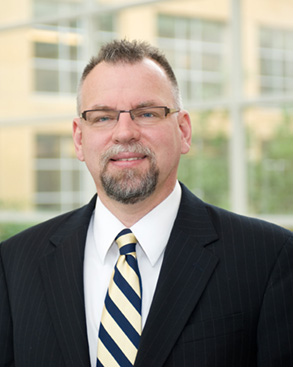The past five years have been characterized by enormous strides toward full equality for the LGBTQ+ community in marriage, employment, and social acceptance. However, this progress has been accompanied by questions about religious freedom, never more notably than in the case of Masterpiece Cakeshop, Ltd. v. Colorado Civil Rights Commission. The Court’s decision to rule in favor of the cake shop fails to resolve these questions and leaves them open for future litigation.
The case determined whether the First Amendment could be invoked to protect a Colorado baker from baking a wedding cake for a same-sex couple. The baker, Jack C. Phillips, claimed making the cake violated his religious beliefs. The couple, Charlie Craig and David Mullins, claimed this refusal violated Colorado's public accommodations law, which requires businesses to serve all customers regardless of "disability, race, creed, color, sex, sexual orientation, marital status, national origin, or ancestry."
The ruling comes at a time of increasing conflict between religious freedom and access to public accommodations. Twenty-one states currently have so-called religious-freedom laws. Religious freedom laws prohibit actions by state and local governments that burden the free exercise of religion. While most states have laws prohibiting businesses from denying access to public accommodations on the basis of many different grounds, twenty-one states include sexual orientation in their list of protected classes of persons. In instances like Masterpiece Cakeshop v. Colorado Civil Rights Commission, this mixing of religion and business creates a conflict.
A majority of the Court avoided addressing this conflict head-on but rather focused on the hostility expressed toward Phillips’ religious beliefs by the Commission during the course of its consideration of his claims. This hostility created the impression that religious beliefs had no place in the commercial sphere and that such beliefs and persons were not welcome in Colorado’s business community. This hostility interfered with the Commission’s neutral consideration of Phillips’ religious objections. The majority opinion refused to go so far as to restrict the rights of members of the LGBTQ+ community to avail themselves of anti-discrimination laws. Neither did the Court declare those with religious objections to same-sex marriage to be a special class worthy of enhanced legal protections. The majority of the Court reached a case-specific result, and neither side achieved their broader goals.
But the fundamental question dodged by the majority’s opinion will undoubtedly arise in future cases. Absent clear guidance from the Court, federal appellate and district courts will be required to reach their own interpretations. One potential result in future litigation is the establishment of an exemption for goods, services, and facilities used in the celebration of same-sex marriages. The implications of such a decision in a lower court may reach much further. Why should an exemption from public accommodation statutes be limited to discrimination against homosexuals? By failing to shut the door on discrimination in the context of public accommodations, the Court’s opinion may result in efforts to deny goods and services to any group or individual with whom a business owner has a religious disagreement. Should exemptions include other, more vital goods and services, such as healthcare? As noted by the Court Romer v. Evans (1996), without robust legal protections, discrete groups could be excluded from an “almost limitless number of transactions and endeavors that constitute ordinary civic life in a free society.” The Court’s absence of clear guidance may result in expanding discrimination against the LGBTQ+ community, as well as other minority communities.
The U.S. legal system, especially in the field of constitutional law, focuses on interpretation and challenging boundaries. The Court’s language in Masterpiece Cakeshop will be tested, interpreted and potentially expanded beyond those circumstances serving as its original justification. For example, what constitutes impermissible hostility toward religion in the context of enforcement of public accommodation statutes? When does questioning of the religious claimant cross from inquiry into the merits of the case and into the realm of hostility? Does a ruling requiring the claimant to abide by the terms of a neutral law of general applicability in contravention of sincerely-held beliefs evidence hostility in and of itself?
Typically, public accommodation statutes have been used to balance the interests of a business with those of justice and equality for society at large. They serve three interests: the protection of human dignity by prohibiting degradation associated with discrimination, guaranteeing access to public establishments by imposing upon them a duty not to discriminate, and defining citizenship through the fostering of social integration which includes participation in the commercial marketplace. The decision in Masterpiece Cakeshop leaves the balancing of these interests outside of the narrow boundaries of the Court’s opinion open to interpretation.
Lucien Dhooge is the Sue and John Staton Professor of Law in the Scheller College of Business at the Georgia Institute of Technology.
